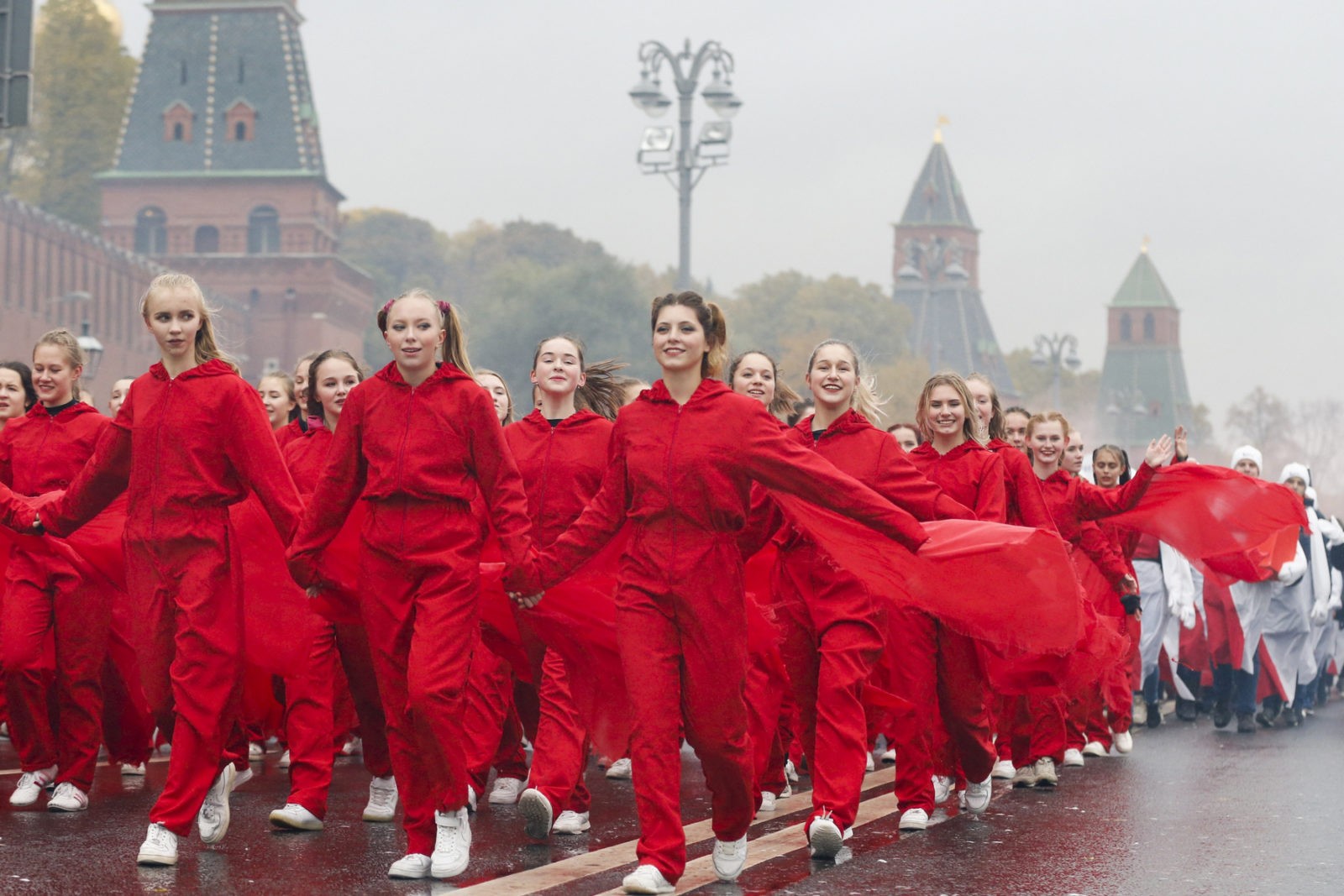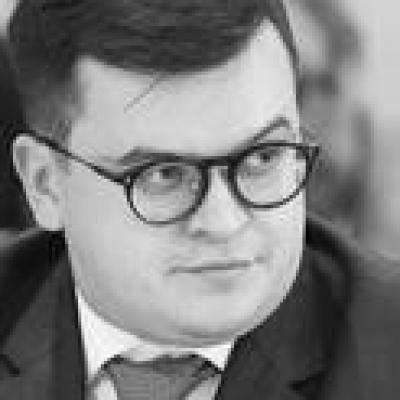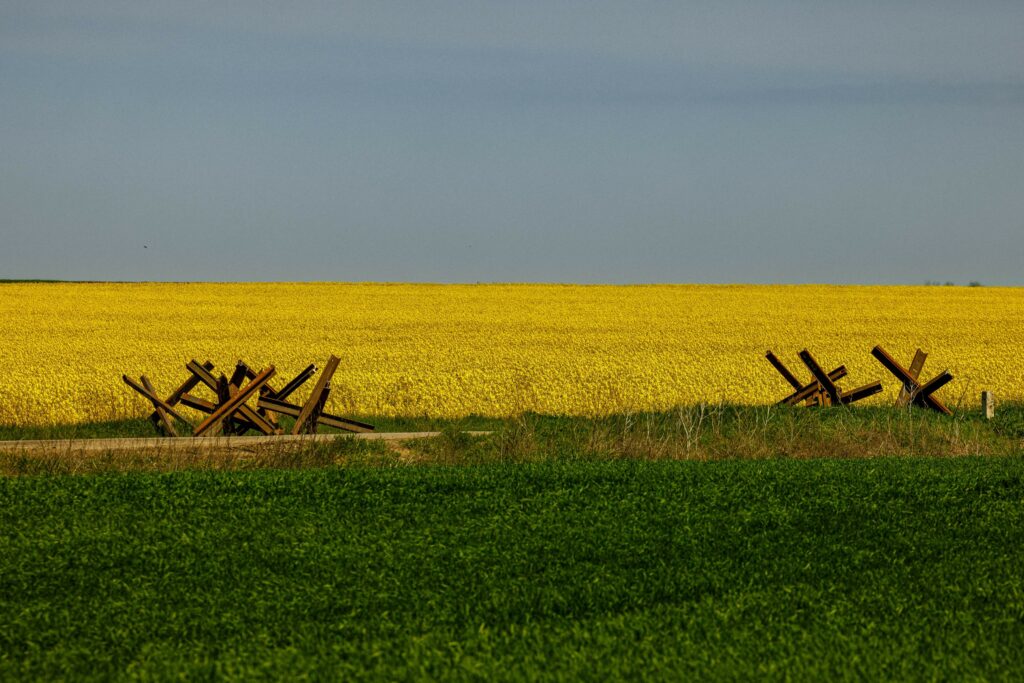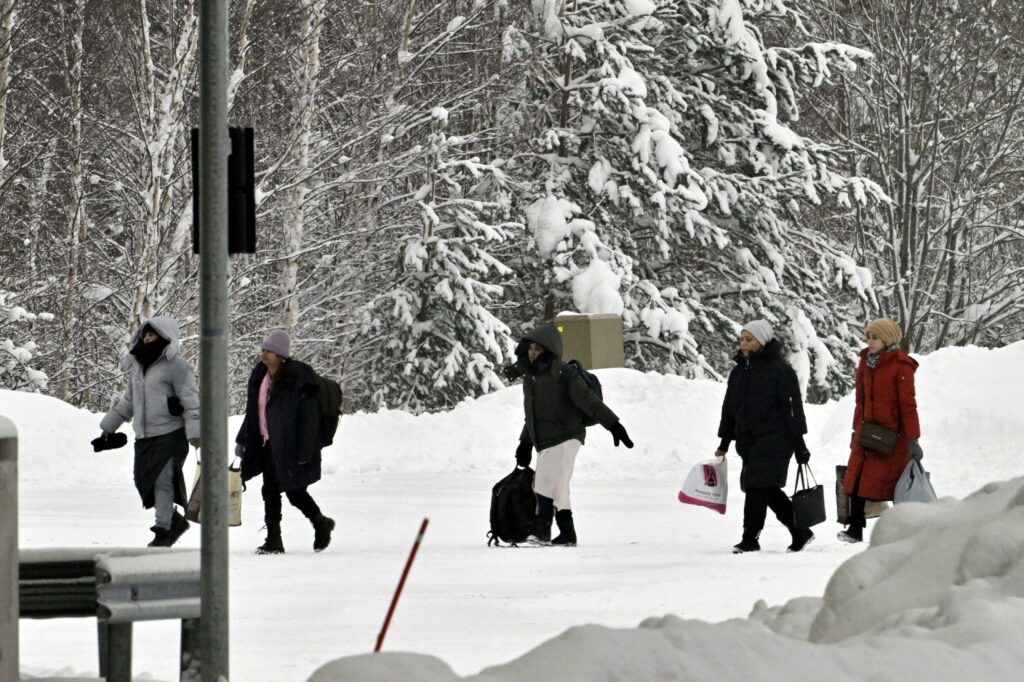According to new data from the Levada Center, 41% of Russians between 18 and 24 years of age would like to leave the country and seek permanent residence abroad. While this could be considered an indirect consequence of dissatisfaction with life in Russia, Levada Center data also show that Russians in this age group take a more positive view of the current state of affairs than older citizens, and their political views are more conformist than the national average (as Margarita Zavadskaya has written, there are few reasons to expect more liberal views from young Russians.)
It’s important to note that these convictions, more conservative than those of the country as a whole, are formed not only by political engagement, but also in the family. Yuliya Lezhnin, senior researcher at the Institute for Social Policy, has written in detail about this turn of young Russians towards more traditional family values, a tendency which is even more obvious among young people in large cities, and most of all among young women in Russia.
That is to say, understanding the views of young people in Russia today does not begin and end with their lack of political engagement; apolitical leanings, after all, can often lead to more conformism in political preferences. One example, writes Lezhnina, could be the fact that young women’s demands for more traditional family values tend to increase during periods of social and economic uncertainty. A similar logic determines the political preferences of young people.
It is this conformist political behaviour, in the opinion of young people, which provides the best route for social advancement in Russia today. It is not insignificant that students traditionally name state officials as one of their top three most prestigious professions. The desire to emigrate and live abroad should be seen in a similar spirit, especially since that goal is not too difficult to attain for the average holder of an undergraduate degree.
Inside Komsomol 2.0
Most of those who sincerely believe that younger generations will come and change everything simply do not understand the reality in which Russian youth exists. This is even truer for students from ordinary regional universities (leaving aside Moscow’s prestigious Higher School of Economics and School of Social and Economic Sciences and the European University of St Petersburg.)
Today, the average freshman at any Russian university was born in around 2000. Such people have never known any other leader than Vladimir Putin, who has been the country’s de-facto leader for their entire lives. This freshman most likely studies at a university in a regional capital, but even there probably feels a stranger because he was born in a smaller town or village. At the same time, he has a good understanding of what an education is really worth in Russia today, because even job search websites no longer require users to fill out their educational background. In short, he’s somebody who realises that there are other paths towards self-realisation and a future career.
Paradoxically, while the educational system in Russia today does not really offer students high-quality knowledge or understanding, it does provide a lot of other opportunities for their self-realisation. All universities have whole departments for extracurricular work, which in some cases are even headed by the vice-chancellor. Thus extracurricular work is almost as significant to the modern Russian university as education and research.
But this system performs another function: it helps the authorities to identify active students, who can then be recruited for various state-organised activities. These can range from student-led construction teams to the “Snowy Landing” initiative (in which students visit villages in winter, where they stage concerts for locals and help the elderly.) These students also play a role in the volunteer movement and youth parliaments. They help out in student unions and events put on by the Russian Youth Union (such as the “Student Spring”) and the Young Lawyers of Russia. These events and organisations are just a few of the many opportunities a Russian student activist is faced with, as part of a wide system for engaging and harnessing the potential of young, ambitious people. In every region, thousands of students get involved in such events every year.
The next stage is to get these active students involved in government-controlled political activities. For example, activists (or rather, the “shock troops”) from student organisations appeared as extras in several rallies in support of Russia’s annexation of Crimea in 2014. Here was how Maria Motuznaya from the Siberian city of Barnaul, who has been prosecuted in several “repost” cases (for reposting or sharing vaguely defined “extremist” content on social media — ed.) described student activists’ roles:
“The mot interesting [developments] happened in 2014. I had become the leader of a [student] construction team […] Let me remind you that at that time I didn’t understand politics nor the events taking place, and was completely immersed in student life. So, in March we gathered at our headquarters and were told that we had to ensure the presence of our ‘troops’ at a demonstration in support of the referendum in Crimea. [Those words] took the form of an order, and they also handed out the slogans on placards which we had to draw. I have to confess, I painted a poster with the words ‘Sevastopol was, is, and will be.’ I really didn’t comprehend what was going on and simply carried out the task assigned as well as I understood it. By the way, I was 19 years old at the time, like most of the guys. In my opinion, it was a hard-nosed attempt to take advantage of immature young minds. Now I feel ashamed about it.”
This exploitation of young student activists becomes even more frequent and even more obvious during election periods. During the campaigning period in the presidential elections of 2018, Golos (a voters’ rights movement and NGO — ed.) launched an investigation into the activities of the “student headquarters of Putin’s supporters” and the “Victory Volunteers” movement, which had allegedly collected signatures to support Putin’s nomination as a candidate in the elections. The Golos investigation revealed that both the Victory Volunteers and student headquarters were closely associated with other youth and student associations, all of which were supervised by Rosmolodezh (the Federal Agency for Youth Affairs) and regional and local administrations. Quasi-government-affiliated election observation groups also drew human resources from these organisations.
In most cases, such youth organisations are under direct state control. Thus in at least 40 of the 76 regions where branches of the Victory Volunteers are present, the organisation’s coordinators happened to be local government employees or organisations funded by the federal budget. Furthermore, in almost all cases, the official duties of these state employees directly concerned the supervision of volunteer initiatives, youth policy, or patriotic education.
As such, the co-founders of the Victory Volunteers on the federal level were:
- Elena Tsunayeva, member of the Civic Chamber of Russia and former head of the Volgograd Patriots’ Centre, a state-funded organisation which is also connected to the Exploratory Movement of Russia and the Russian Movement of Schoolchildren.
- Sergey Pershin, director of Rosmolodezh and Roskultsentr(Federal State Budgetary Institution “Center for the Support of Youth Creative Initiatives”).
- Alisa Kryukova, director of Rosdetsentr(Federal State Budgetary Institution “Russian Children and Youth Center”).
- Vladimir Mennikov, executive director of the Association of Volunteer Centres (founded by the organising committee of the Sochi Olympic Games.)
Another co-founder of the organisation was Olga Amelchenkova, who remains the head of the Victory Volunteers to this day. In 2015-16 Amelchenkova worked as director of the patriotic and volunteer programmes department of Rospatriotsentr. In 2017, she became a member of the Civic Chamber of Russia, and by that December the media was discussing her as a possible candidate to lead the public headquarters of Putin’s presidential re-election campaign.
The Russian state has now essentially reincarnated the pioneer and Komsomol organisations of the Soviet era, only with a looser structure. This structure is pseudo-public and pseudo-bureaucratic, and is one which falls short of the needs of university students and schoolchildren alike.

“All Paths Are Open to the Young”
It’s important to note that this system, whatever its political (ab)uses, genuinely does offer social advancement for active young people from the provinces. At the end of last year, the online publication znak.com took stock of the leaders of youth policy in Russia’s regions. Interestingly, graduates of this “Komsomol 2.0” have gone on to occupy quite influential positions in state bureaucracy, especially when it comes to youth policy. For example, thirty somethings who themselves once led these youth groups now spearhead youth policy in several regional administrations, such as those of Krasnoyarsk Krai and the Archangelsk and Chelyabinsk Oblasts. Meanwhile, the overseers of youth policy in Stavropol Krai and the Kursk and Vologda Oblasts are former staffers from the Russian Union of Youth. Renata Abdulina, St Petersburg’s top official responsible for youth policy, is herself a former employee of the Youth Civic Chamber of the Moscow City Duma, and then worked as an advisor to Rosmolodezh.
From the vantage point of an ambitious young Russian from the backwoods, these are inspiring examples of brilliant careers. The number of members of Russia’s various representative bodies in Russia who have passed through these youth organisations may be impossible to calculate.
What we can say is that a significant share of active and ambitious young people, especially those from the regions, are now successfully engaged in the career development schemes offered by the Russian government. And once more, this fact alone is a good reason to drop any illusions that the young Russians of today will be prepared to roll up their sleeves and correct the many mistakes their elders made in years past.
Furthermore, other routes towards social and political self-realisation for young people are now largely blocked. The older, more established structures of civil society have been shattered, and when they do exist there is practically no influx of young personnel to keep them afloat. New civic organisations have arose in recent years, but without systemic financial support they often struggle to survive. Liberal political organisations have negligible influence on young people or programmes to expand it; the efforts of Yabloko (an extra-parliamentary liberal political party founded in 1993 — ed.) in this regard are almost imperceptible, and a scheme by opposition activist and former independent Duma deputy Dmitry Gudkov to form a “political Uber” had no systematic influence even on those few activists who managed to be elected to Moscow local councils in 2017. In fact, only the activities of Alexey Navalny stand out against this dispiriting background. However, even Navalny’s activities in the regions over the past year have decreased significantly. Far from being a vehicle for social advancement, involvement with the “Navalny headquarters” these days is a surefire way to get into problems with the police and security services. So while this form of political engagement also involves a rigid hierarchy, choosing it as a path towards self-realisation can only come with a lot of caveats, if not reservations.
Nevertheless, it wouldn’t be fair to say that there’s no thirst for liberal politics among young Russians today. In recent years, young people have taken to the streets in protests and participated in civic election observation missions, alongside other volunteer projects. But without a broad field of other social activities, a few dozen engaged students in a region can quickly become a closed circle; its members may soon grow disillusioned and start to leave it, preferring to migrate elsewhere in Russia or even overseas. All of the above must compel the more “progressive” elements in Russian society to think much more seriously about how to attract young people to their side.










